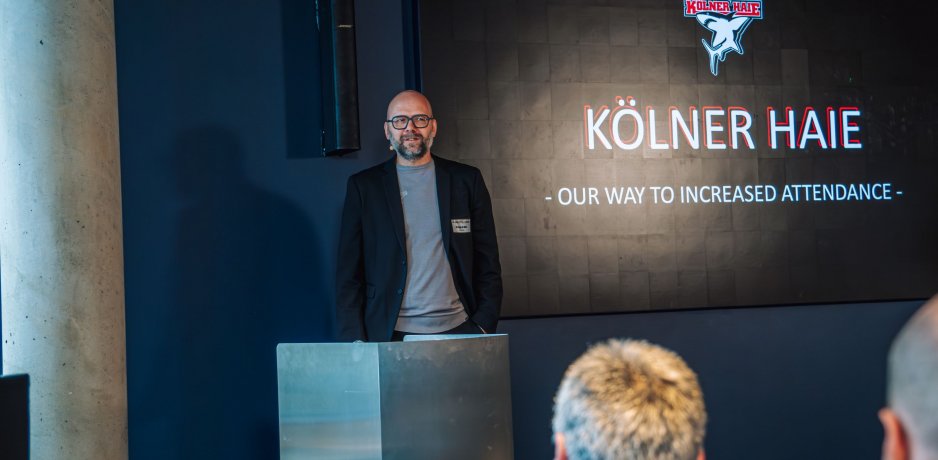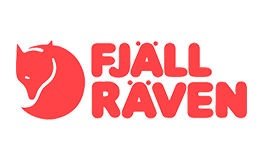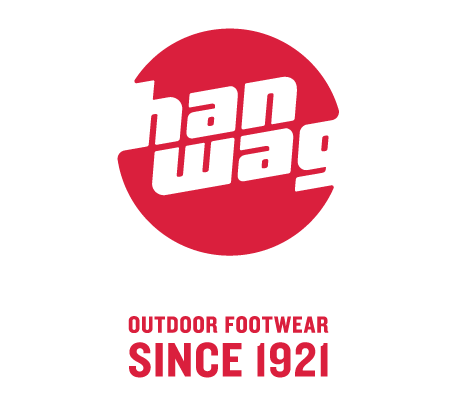Baby steps and data made Kölner Haie the biggest draw in Europe

If Philipp Walter, Managing Director of the Kölner Haie, didn’t have everyone’s attention when he took the stage at the Hockey Business Forum in late October, the audience certainly took notice when he said the magic words: “We realized that we didn’t need success on the ice to fill the arena.”
Isn’t that the Holy Grail of hockey business? Fill the seats, win or lose?
In the last five years, the Cologne Sharks have twice missed the playoffs completely, lost in a play-in round once, and bowed out in the quarterfinal twice – hardly an impressive record. Also, in 2019-20, the team recorded a 17-game losing streak.
And yet, in those same five years, the Sharks’ average attendance has risen from 11,000 to 17,000 – technically, 16,993 – and Walter and his team expect to break the record this season again.
Very few clubs in the world can expect their fans to keep on supporting a team that doesn’t win any titles. (Only a couple of Canadian NHL teams come to mind). And somehow, Kölner Haie has pulled it off.
“First of all, Cologne is a special city. The actual city has a population of about a million, with another two million living in the metropolitan area, but there’s a strong sense of unity there,” Walter says. “I don’t live in the city but even people in my town say they’re from Cologne.”
“Take, for instance, the Cologne Carnival season,” he adds, referring to the city’s “fifth season” that begins at 11:11 on the 11th day of the 11th month and culminates in a week-long party leading up to Ash Wednesday. “Some people may think it’s silly, but the good people of Cologne pour their heart and soul into it.”
That’s what makes Cologne Cologne.
“And it’s not just old men playing in those carnival bands, but young kids, everybody sings in the pubs, and they’re laughing and crying. It’s almost pathetic … if it wasn’t so awesome,” he adds.
So, when the Kölcher folk throw their support behind their hockey team, they mean business.
Even if everyone in Cologne knows the Sharks, the Haie made sure the message about how much fun the games are, truly came across. The secret to that? Better marketing with the help of data.
The club acquired Salesforce for CRM and data management, relaunched its website and online store, and invested in social media advertising.
“We also invest in affiliate marketing, so you visit our website or buy a ticket, your device gets a cookie which then helps us tailor our ads to you in German media,” said Torsten Pfennig, Head of Finance, Digital and New Business.
Customer segments are well-defined, and newsletters are individually tailored.
“In the past, when someone bought four tickets and gave three of them to his or her friends, we didn’t know anything about them. Now we’ve added a ticket transfer functionality into our app so that once those tickets are shared, we get more data,” Pfennig said.
“Data is the big thing. When we’re attending a street party in Cologne, with a quiz and our mascot, we’re there to collect data. If we get 50 new contacts, it’s another baby step, better than zero. Maybe ten of them will come to a game?” adds Walter.
The Sharks have done it without titles, or the bump of a new arena. The team plays their home games in the 18,500-seat Lanxess Arena that opened in October 1998.
“Naturally, there’s no one thing behind the turnaround. When we have our weekly marketing meeting, we always try to take steps, however small, and make them matter. Add 50 fans here, and a hundred there,” Walter says.
It all adds up. And the Haie still have an ace up their sleeve.
“It’ll be super interesting to see what happens when we are successful on the ice. Right now, we’re not a bad team, but we are an average team, in the middle of the pack, so of course our fans get to celebrate wins on home ice, but it’s not as important as we thought,” Walter adds.
Not that Walter doesn’t care about winning.
On the contrary.
“To be honest, even I don’t want to believe that the results don’t matter. I’m a sports guy, and I want to see success on the ice, too. And we haven’t enough evidence that success doesn’t matter, not quite yet,” he says.
Does the success at the box office make Walter’s job a little less stressful when a losing streak doesn’t mean concern over his job, let alone other people’s jobs in the organization?
“Maybe. But losing’s never fun,” he says.
Photo: Nina Grägel









